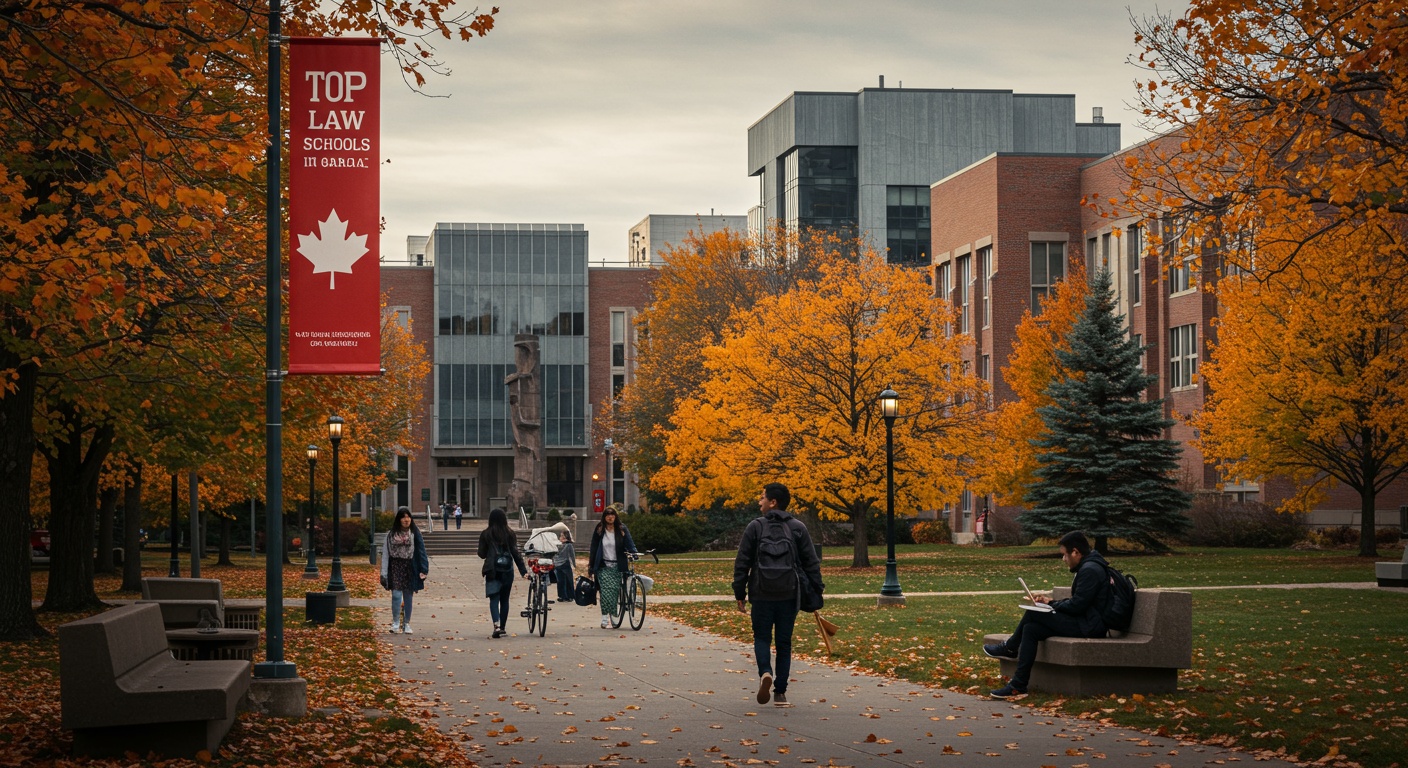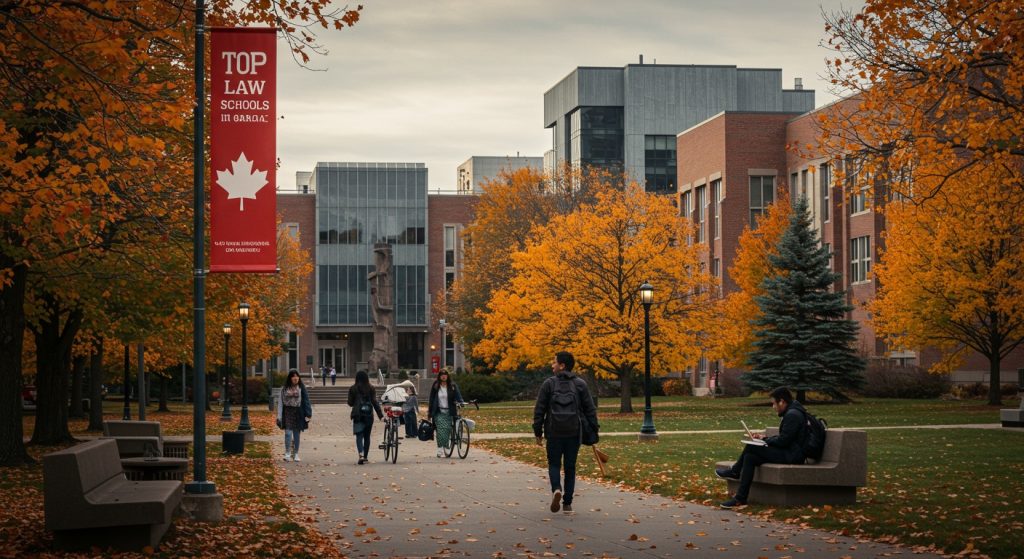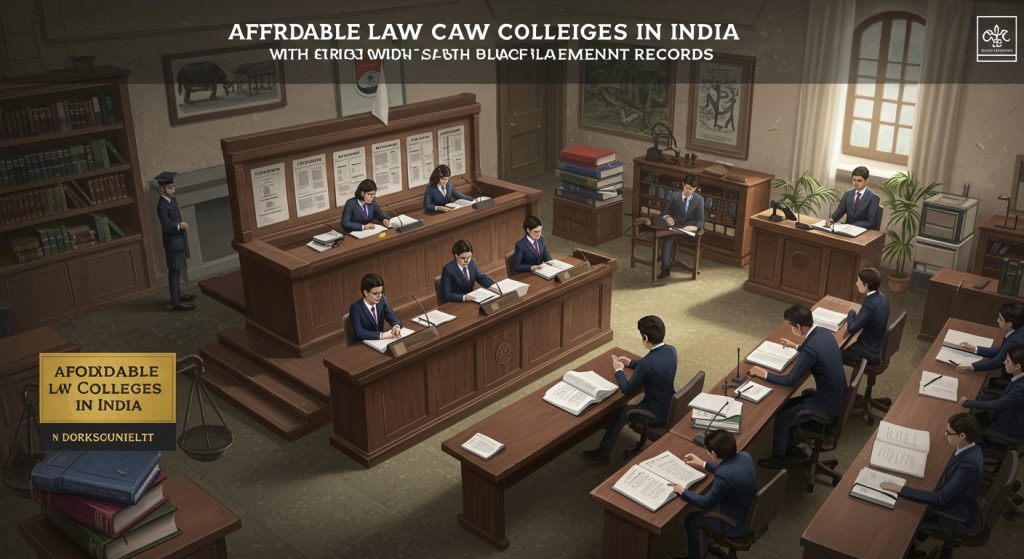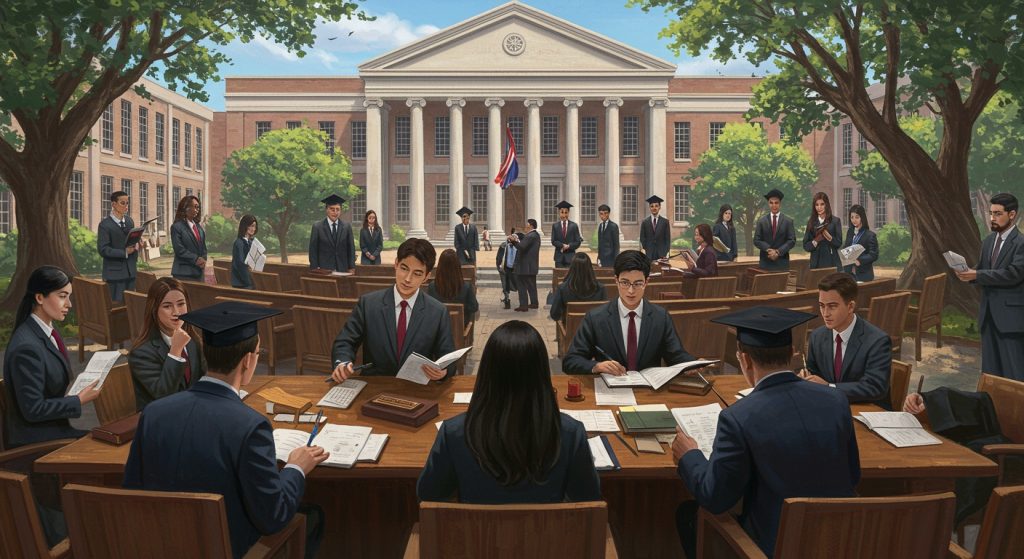Canada’s legal landscape is rapidly evolving, attracting international students seeking globally recognized legal education. Competition for entry into Canadian law schools is fierce, especially for foreign applicants navigating complex admission requirements and varied program specializations like business law or human rights. Selecting the right school hinges on factors such as bar passage rates, clinical program offerings. Post-graduation employment statistics—recent data shows a strong correlation between experiential learning and career success. This exploration identifies top Canadian law schools renowned for academic rigor, international student support. Career placement, providing a framework for informed decision-making in your legal education journey.

Understanding the Canadian Legal Education System
Before diving into specific institutions, it’s crucial to comprehend the Canadian legal education landscape. Unlike some countries, Canada doesn’t offer undergraduate degrees in Law. To pursue a Law degree, you typically need to complete an undergraduate degree in any discipline first. This is followed by a three-year program leading to a Juris Doctor (JD) degree, which is the standard professional degree required to practice Law in Canada. Some schools offer combined programs (e. G. , JD/MBA, JD/MA) that allow students to earn two degrees concurrently.
Canadian Law schools emphasize critical thinking, legal research. Practical skills. Many incorporate experiential learning opportunities such as:
- Moot Court: Simulated court proceedings where students argue hypothetical cases.
- Legal Clinics: Opportunities to provide legal assistance to low-income individuals under the supervision of experienced lawyers.
- Internships/Externships: Placements in Law firms, government agencies. Non-profit organizations.
The application process is competitive. Admission criteria typically include:
- LSAT Score: The Law School Admission Test is a standardized test assessing reading comprehension, logical reasoning. Analytical reasoning skills.
- Undergraduate GPA: A strong academic record is essential.
- Personal Statement: An essay outlining your motivations for studying Law, relevant experiences. Personal qualities.
- Letters of Recommendation: Testimonials from professors or other individuals who can attest to your academic abilities and character.
Key Considerations for International Students
Choosing the right Law school is a significant decision, especially for international students. Here are some factors to consider:
- Tuition Fees: Tuition fees for international students are generally higher than for domestic students. Research the costs associated with each program and explore scholarship opportunities.
- Location: Consider the location of the school and whether it aligns with your career aspirations. Some provinces may have higher demand for lawyers in specific areas of Law.
- Program Focus: Different Law schools may have strengths in specific areas of Law, such as corporate Law, environmental Law, or human rights Law. Choose a program that aligns with your interests.
- International Student Support: Look for schools that offer comprehensive support services for international students, including visa assistance, academic advising. Cultural integration programs.
- Career Services: A strong career services department can provide valuable resources and support to help you find employment after graduation.
- Networking Opportunities: Consider the school’s alumni network and opportunities to connect with practicing lawyers and legal professionals.
Top Canadian Law Schools for International Students
While rankings should be viewed with caution, they can provide a general indication of a school’s reputation and resources. Here are some of the top Law schools in Canada, often considered excellent options for international students. Note that specific program offerings and strengths can vary, so thorough research is essential.
University of Toronto Faculty of Law
The University of Toronto Faculty of Law is consistently ranked among the top Law schools in Canada and the world. It offers a rigorous academic program with a strong emphasis on legal theory and research. The Faculty boasts a diverse student body and a renowned faculty. International students are well-represented. The university offers a range of support services.
- Strengths: Constitutional Law, International Law, Criminal Law, Legal Theory.
- Notable Programs: Combined JD programs with other faculties (e. G. , MBA, Public Policy), extensive clinical programs.
- Real-World Application: Many graduates pursue careers in private practice, government. Academia. A significant number also work for international organizations.
McGill University Faculty of Law
McGill University’s Faculty of Law is unique in its emphasis on both Common Law and Civil Law traditions. Students graduate with degrees in both Common Law (BCL) and Law (LLB), providing a broader understanding of legal systems. The Faculty is located in Montreal, a vibrant multicultural city. Attracts students from around the world.
- Strengths: Comparative Law, Human Rights Law, International Law, Environmental Law.
- Notable Programs: Joint programs with other faculties (e. G. , MBA, Social Work), Center for Human Rights and Legal Pluralism.
- Real-World Application: Graduates often pursue careers in international organizations, human rights advocacy. Cross-border legal practice.
University of British Columbia (UBC) Allard School of Law
The Allard School of Law at UBC is located in Vancouver, a beautiful coastal city. The school offers a comprehensive Law program with a strong focus on practical skills and experiential learning. It has a strong commitment to social justice and Indigenous legal issues.
- Strengths: Business Law, Environmental Law, Indigenous Legal Studies, Criminal Law.
- Notable Programs: Indigenous Community Legal Clinic, Business Law Clinic, Environmental Law Clinic.
- Real-World Application: Graduates find employment in private practice, government. Non-profit organizations, particularly in British Columbia.
Osgoode Hall Law School (York University)
Osgoode Hall Law School at York University in Toronto is one of the largest Law schools in Canada. It offers a wide range of courses and programs, including specialized streams in areas such as business Law, criminal Law. International Law. Osgoode has a strong emphasis on social justice and clinical legal education.
- Strengths: Labour Law, Administrative Law, Criminal Law, Business Law.
- Notable Programs: Intensive Program in Poverty Law, Clinical Education Program, Parkdale Community Legal Services.
- Real-World Application: Graduates pursue careers in a variety of sectors, including private practice, government. Legal aid clinics.
University of Alberta Faculty of Law
The University of Alberta Faculty of Law is located in Edmonton and offers a comprehensive Law program with a strong focus on natural resources Law and energy Law. It’s a good choice for students interested in these specialized areas. The Faculty also has a strong commitment to Indigenous legal issues.
- Strengths: Natural Resources Law, Energy Law, Aboriginal Law, Criminal Law.
- Notable Programs: Center for Constitutional Studies, Alberta Law Reform Institute.
- Real-World Application: Graduates find employment in Law firms, energy companies. Government agencies, particularly in Alberta and Western Canada.
University of Ottawa Faculty of Law
The University of Ottawa Faculty of Law offers programs in both Common Law and Civil Law, making it a unique option for students interested in bilingual legal education. Located in Ottawa, the nation’s capital, it provides opportunities to engage with government and policy-making institutions.
- Strengths: Human Rights Law, International Law, Constitutional Law, Public Law.
- Notable Programs: Human Rights Research and Education Centre, Joint programs with other faculties (e. G. , MBA, Public Administration).
- Real-World Application: Graduates often pursue careers in government, international organizations. Human rights advocacy.
Tuition and Funding Opportunities
Tuition fees for international students at Canadian Law schools can range from CAD $30,000 to CAD $60,000 per year. It’s essential to research the specific tuition fees for each program and factor in living expenses.
Several funding opportunities are available to international students, including:
- Law School Scholarships: Many Law schools offer scholarships based on academic merit, financial need, or other criteria.
- External Scholarships: Explore external scholarship opportunities offered by organizations such as the Canadian government, international foundations. Private companies.
- Loans: Some international students may be eligible for loans from their home countries or from Canadian banks.
- Bursaries: Bursaries are need-based grants that do not need to be repaid.
It’s vital to start researching funding opportunities early in the application process.
Navigating the Application Process
The application process for Canadian Law schools can be complex, particularly for international students. Here are some tips to help you navigate the process:
- Research Admission Requirements: Carefully review the admission requirements for each Law school, including LSAT scores, GPA requirements. Personal statement guidelines.
- Prepare for the LSAT: The LSAT is a crucial component of the application. Invest time in preparing for the test by taking practice tests and reviewing relevant materials.
- Craft a Strong Personal Statement: The personal statement is your opportunity to showcase your motivations for studying Law, relevant experiences. Personal qualities. Make sure it’s well-written, compelling. Tailored to each school.
- Obtain Strong Letters of Recommendation: Request letters of recommendation from professors or other individuals who know you well and can attest to your academic abilities and character.
- Submit Your Application Early: Law schools typically have rolling admissions, so it’s best to submit your application as early as possible.
- Address English Language Proficiency: If English is not your first language, you may need to submit proof of English language proficiency, such as TOEFL or IELTS scores.
- interpret Visa Requirements: International students will need to obtain a student visa to study in Canada. Research the visa requirements and start the application process well in advance of your intended start date.
Career Prospects for International Law Graduates
Graduating from a Canadian Law school can open up a wide range of career opportunities, both in Canada and internationally. Some common career paths for Law graduates include:
- Private Practice: Working as a lawyer in a Law firm, specializing in a particular area of Law.
- Government: Working as a lawyer for a government agency, such as the Department of Justice or the Ministry of the Attorney General.
- Corporate Counsel: Working as in-house counsel for a corporation, providing legal advice on a variety of matters.
- Non-Profit Organizations: Working for a non-profit organization, advocating for social justice or providing legal services to underserved communities.
- Academia: Pursuing a career as a Law professor, teaching and conducting legal research.
- International Organizations: Working for an international organization, such as the United Nations or the World Bank.
International graduates who wish to practice Law in Canada will need to meet certain requirements, including completing the National Committee on Accreditation (NCA) process to have their foreign Law degrees assessed and potentially completing additional coursework or exams. They will also need to article (complete a period of supervised legal training) and pass the bar exam in the province where they wish to practice.
The NCA Process Explained
The National Committee on Accreditation (NCA) is a committee of the Federation of Law Societies of Canada. Its primary purpose is to assess the legal education and qualifications of individuals who have obtained their Law degrees outside of Canada and who wish to become lawyers in a Canadian common Law jurisdiction (all provinces and territories except Quebec). This assessment ensures that foreign-trained lawyers have a level of legal knowledge and competence comparable to that of graduates from Canadian Law schools.
How the NCA Process Works:
- Application: Candidates must apply to the NCA and provide detailed data about their legal education, including transcripts and course descriptions.
- Assessment: The NCA assesses the applicant’s legal education to determine whether it is substantially equivalent to a Canadian Law degree. This involves reviewing the applicant’s coursework and comparing it to the curriculum of Canadian Law schools.
- Assignments: Based on the assessment, the NCA may assign the applicant to complete a number of assignments. These assignments typically consist of taking challenge exams in core Canadian Law subjects, such as Constitutional Law, Criminal Law, Contracts, Torts, Property. Administrative Law. The number of assignments varies depending on the applicant’s prior legal education and experience.
- Challenge Exams: Challenge exams are standardized exams designed to assess the applicant’s knowledge of Canadian Law. They are typically three hours in length and require a passing grade to fulfill the assignment.
- Alternatives to Challenge Exams: In some cases, the NCA may allow applicants to fulfill assignments by completing coursework at a Canadian Law school instead of taking challenge exams. This option may be suitable for applicants who prefer a more structured learning environment.
- Certificate of Qualification: Once the applicant has successfully completed all of the assignments, the NCA will issue a Certificate of Qualification. This certificate confirms that the applicant’s legal education is substantially equivalent to a Canadian Law degree.
After the NCA:
Obtaining an NCA Certificate of Qualification is just one step in the process of becoming a lawyer in Canada. After receiving the certificate, candidates must also:
- Complete Articleship: Article (work under the supervision of a practicing lawyer) for a specified period, typically 10-12 months.
- Pass the Bar Exam: Successfully complete the bar admission course and pass the bar exam in the province or territory where they wish to practice Law.
The NCA process can be challenging. It is a necessary step for foreign-trained lawyers who wish to practice Law in Canada. Proper preparation and a strong understanding of Canadian Law are essential for success.
Conclusion
Navigating the Canadian legal landscape as an international student requires careful planning and a strategic approach. You’ve now explored some of Canada’s top law schools, understanding their strengths and unique offerings. The next step is to self-assess: consider your LSAT score, academic background. Career aspirations. Think beyond rankings; research faculty specializations that align with your interests, like international human rights law, increasingly relevant in today’s globalized world. Don’t underestimate the power of networking. Attend virtual law school fairs and connect with current students and alumni, gaining invaluable insights. Remember, acceptance into a top law school is not just about grades, it’s about demonstrating your passion for law and your potential to contribute to the legal community. Your journey begins now – seize the opportunity and shape your future in Canadian law.
More Articles
Top Universities in Canada for Business Management Studies
Leading UK Law Schools for International Students
Best Canadian Universities for Biotechnology Research
Architectural Design Excellence in Italian Universities
FAQs
So, which Canadian law schools are generally considered the top dogs for international students?
Okay, so there isn’t one definitive ranking everyone agrees on. Generally, you’ll hear McGill University, the University of Toronto. Osgoode Hall Law School at York University mentioned as consistently strong contenders. The University of British Columbia is also highly regarded. Think of them as the usual suspects at the top of most ‘best of’ lists.
What’s the deal with international student tuition fees? Are they crazy expensive?
Let’s be real, tuition for international students is definitely higher than for domestic students, often significantly so. It varies between schools and programs. You can expect to pay a hefty premium. It’s absolutely worth doing your research and budgeting carefully. Check each school’s website for the most up-to-date figures; it’s a big investment.
Do Canadian law schools offer scholarships or financial aid specifically for international students?
Yes. Funding can be competitive. Some schools offer scholarships tailored to international students, while others allow you to apply for general scholarships. It’s not always a ton of money, so don’t rely solely on scholarships to cover costs. Look into external funding sources and government programs in your home country as well!
What kind of LSAT score do I need to even think about getting into a top Canadian law school?
Aim high! While there’s no magic number, the higher your LSAT score, the better your chances, especially for international students. You’ll want to research the median LSAT scores for admitted students at your target schools. A score in the 160s or even higher is generally what you’re aiming for at these top institutions. Don’t forget that your GPA and other parts of your application matter too!
Besides academics, what else do these schools look for in international applicants?
They’re looking for well-rounded candidates! Strong academics are crucial. They also want to see your extracurricular activities, leadership experience. Any volunteer work. Your personal essay is super crucial; it’s your chance to show them who you are and why you want to study law in Canada. Think about how your background and experiences will contribute to the law school community.
Is it difficult for international students to find work after graduating from law school in Canada?
It can be competitive. It’s definitely possible. Networking is key. Take advantage of career services offered by the school, attend networking events. Try to get internships or summer placements. Your visa status can impact your job search, so make sure you interpret the rules and regulations. Some firms are more open to sponsoring international graduates than others, so research is key!
Okay, last one: What’s the application process like for international students?
It’s pretty similar to the process for domestic students. There are a few extra steps. You’ll need to get your transcripts evaluated to show they’re equivalent to a Canadian degree. You’ll also likely need to provide proof of English language proficiency (TOEFL or IELTS scores). Start the application process early, as it can take some time to gather all the required documents.



